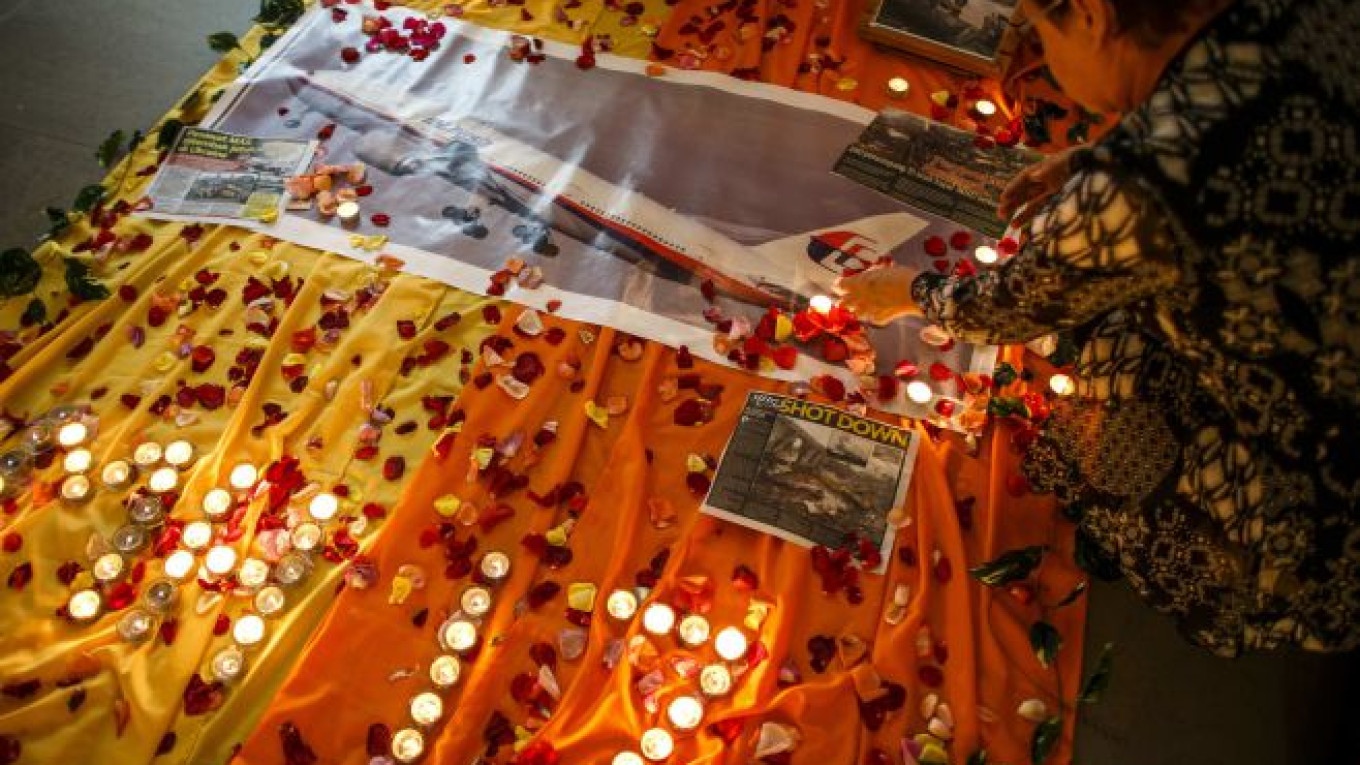Yesterday afternoon Flight MH17 was shot out of the sky over the Ukrainian city of Donetsk. In the ensuing crash, none of the 298 passengers on board survived.
The Donetsk region, located near Ukraine's border with Russia, has been the scene of fierce fighting between pro-Russian separatists and the Ukrainian army for months. Likely one of these two sides is responsible for shooting down the plane.
Malaysian Airlines Flight MH17's passage over Ukraine was a brief interval in a long voyage from Amsterdam to Kuala Lumpur. A number of different nationalities were represented on board, including 154 Dutch citizens. Many were heading to an important AIDS conference in Australia. While some of those who died may have been familiar with the conflict raging 33,000 feet below, none of them could ever have thought it would impact their lives so tragically.
The Ukrainian crisis has already seen many tragedies, from the deaths of pro-EU protestors in February, which helped topple Ukraine's former pro-Russian government, to the many fighters on both sides who have died in combat, to the dozens of civilians caught in the cross-fire. Up until now, though, many of those involved in the crisis could still convince themselves that they were fighting for a cause worth dying for.
The Ukrainian Army, allied with activists from the country's west, believe they are fighting for their county's liberty from Russian influence. The separatists fighting against them, brainwashed by Russian propaganda and frightened by the ham-fisted nationalism of Kiev's new government, believe they are fighting against a fascist coup.
Unfortunately, even in the wake of this devastating loss of life, higher civilian casualties could be in the offing.
Prior to the downing of flight MH17, the Ukrainian Amy was preparing to besiege the rebels holed up in heavily populated Donetsk. As military forces, neither the Ukrainian army nor the rebels are of the highest calibre. And even the Israeli military, one of the most professional armed forces in the world, has been unable to avoid high civilian casualties in its recent attack on Palestine. An assault on Donetsk could lead to a massive loss of civilian life, as well as the destruction of one of Ukraine's major urban centers.
Sadly, neither the separatists in Donetsk nor the politicians in Kiev and Moscow have expressed interest so far in treating the plane's destruction as a launching point for reconciliation efforts.
As the matter currently stands, a decisive victory for either side appears unlikely. Neither Kiev nor the separatists have the military resources or expertise to achieve a clean victory with minimal civilian casualties.
The violence will only become worse if the Kremlin actively supports the rebels. They could do this by funneling more sophisticated weapons to them, making it easier for volunteers from Russia to cross the border into Ukraine or moving large numbers of their own troops immediately to the border.
The most recent round of U.S. sanctions are aimed at punishing Russia for those very tactics, which the U.S. alleges Russia has already perpetrated.
The EU also took measures this week but did not go as far as the U.S., in part because the EU is economically far more exposed to Russia. The recent BRICS summit meeting, moreover, seemed to give credence to the view that while relations with the West may be strained, Russia is not isolated internationally.
The wreckage of flight MH17 could change this. With the deaths of 298 foreign nationals from across the world, the conflict has gained an international dimension.
This opens up an opportunity for those backing Kiev to publicly declare any Kremlin interference in Ukraine an international threat. Kiev supporters could then build consensus on stronger, more wide-reaching economic sanctions. Previous sanctions have already cut off most of Russian businesses' access to international capital markets, and increasing their bite could severely damage the Russian economy.
Kiev's supporters could also use any Kremlin support for the rebels to damage Russia's image abroad. While the U.S. already views Moscow poorly, many others in Europe and Asia have not made up their mind. If Russian aid to the rebels was successfully portrayed as supporting terrorism, Russia would have a hard time attracting international allies.
The deaths of 298 innocent civilians won't immediately lead to peace. But it may very well provide an opening for Kiev's allies to cut Russia out of the picture, allowing Ukraine to more effectively pursue its fight against the rebels. This tragedy may also give some advantage to those within Russia's collective leadership who support peace, if such a bloc can find a way to make its voice heard.
A Message from The Moscow Times:
Dear readers,
We are facing unprecedented challenges. Russia's Prosecutor General's Office has designated The Moscow Times as an "undesirable" organization, criminalizing our work and putting our staff at risk of prosecution. This follows our earlier unjust labeling as a "foreign agent."
These actions are direct attempts to silence independent journalism in Russia. The authorities claim our work "discredits the decisions of the Russian leadership." We see things differently: we strive to provide accurate, unbiased reporting on Russia.
We, the journalists of The Moscow Times, refuse to be silenced. But to continue our work, we need your help.
Your support, no matter how small, makes a world of difference. If you can, please support us monthly starting from just $2. It's quick to set up, and every contribution makes a significant impact.
By supporting The Moscow Times, you're defending open, independent journalism in the face of repression. Thank you for standing with us.
Remind me later.


